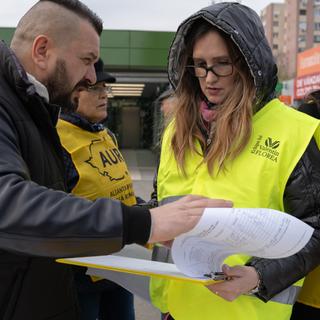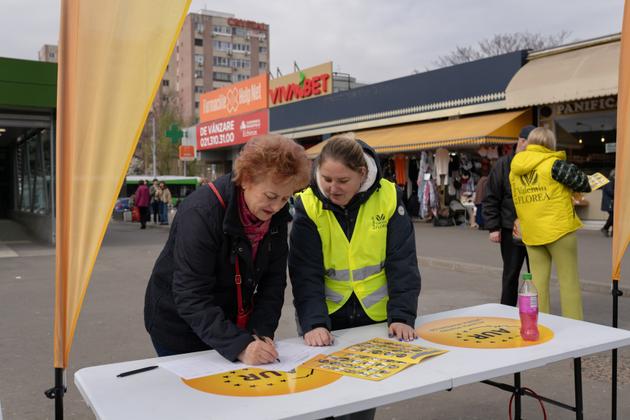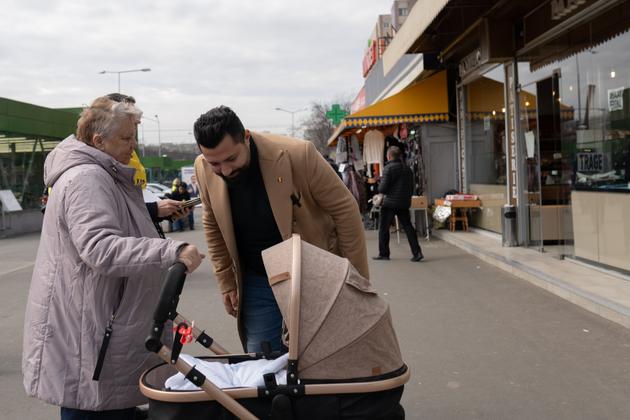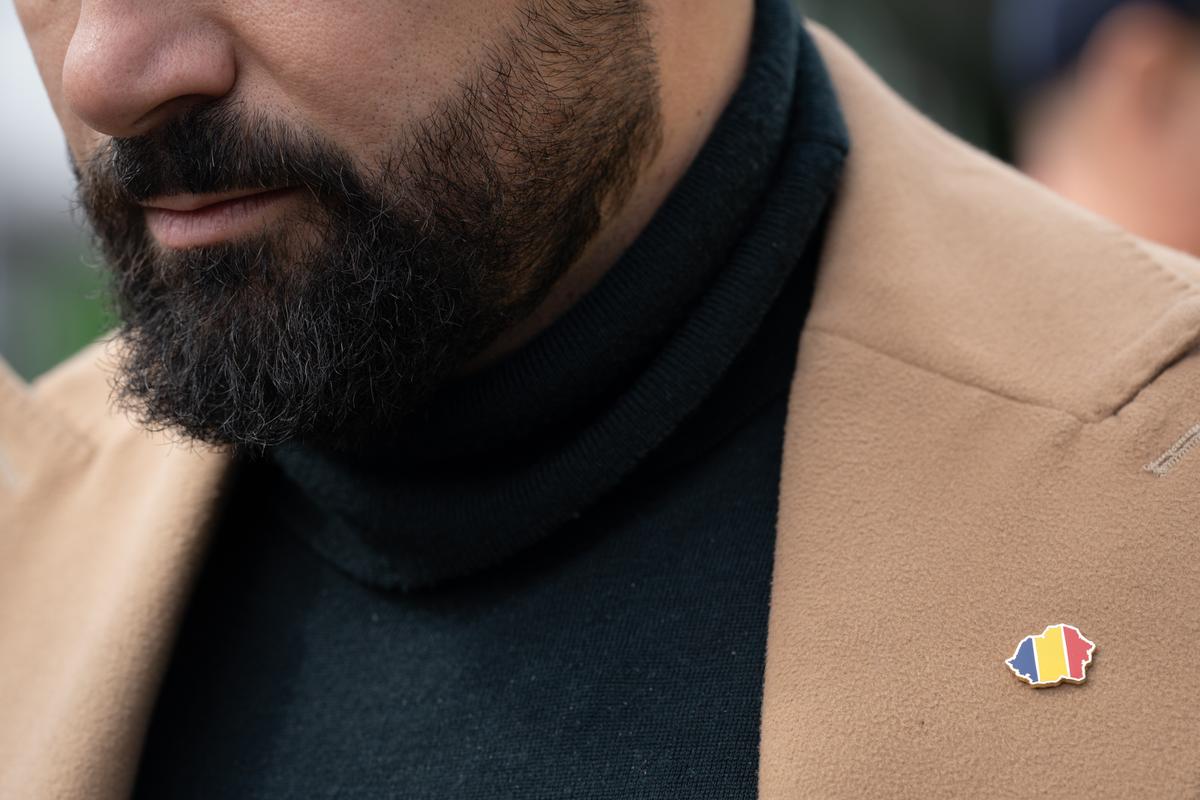


European elections: Romanian anti-Ukraine 'Facebook parties' gain traction
FeatureCreated after Covid-19, pro-Russian or nationalist political groupings are attracting more and more voters by focusing on provocation and anti-system rhetoric.
It's the same scenario every time. George Simion turns up to an uninvited event. He pulls out his phone, turns on the camera, goes live on Facebook and starts shouting slogans against the "globalists," the "Sorosoids" (referring to Jewish-origin American philanthropist George Soros) and the "neo-Marxist dictatorship." If a policeman tries to calm him down or restrain him, he adds to his rant by railing against those who attack "Romania's children."


This deafening show can last for hours and attracts tens of thousands of Romanians on Facebook. One of Simion's latest targets was Ursula von der Leyen. Present in Bucharest on March 6 for the congress of her party, the European People's Party, the president of the European Commission was confronted by a demonstration of hundreds of people. They were led by the sturdy dark-haired man, who wore a cap celebrating Donald Trump. He shouted "Out, Pfizer Ursula," referring to the anti-Covid vaccine that the conspiracy theorist detests. He believes that "Brussels is a new USSR."
These incidents have transformed Simion, 37, into the most influential political personality on Romanian Facebook in just a few years, with over 1.3 million followers. The former football fanatic founded his nationalist and conspiracy theorist right-wing party in 2019, called the Alliance for the Union of Romanians (AUR). He saw his popularity explode thanks to his anti-lockdown and anti-vax stance during the Covid-19 pandemic, first on Facebook, then increasingly on TikTok.
Turning millions of likes into newsletters
"He has become one of Romania's biggest propagators of fake news, particularly on the European Union [EU], with an extremely well-oiled machine," noted Elena Calistru, president of the anti-disinformation NGO Funky Citizens, still traumatized by the way Simion barged in, phone in hand, at a recent conference she attended. "He has taken public debate to an unprecedented level of aggression."

Romania is preparing for a busy election year. There are the European elections on June 9, along with its local elections which will then be followed by presidential and legislative elections in the fall. Simion's party, which has electrified Romania's political scene, could well convert its millions of likes into ballots. Pollsters put the party as having around 20% of the vote, 11 points more than in the 2020 parliamentary elections.
Between 5% to 10% of votes have been attributed to AUR dissident Diana Sosoaca, who has founded her party S.O.S Romania, which openly defends pro-Russian positions. This means that nearly 30% of Romanians could give their votes to political groupings deeply critical of support for Ukraine. The successes of these "Facebook parties" demonstrate the limits of the EU's Digital Services Act, a bill that came into force in August to force platforms, in theory, to fight more strongly against disinformation, particularly pro-Russian.
You have 61.92% of this article left to read. The rest is for subscribers only.
